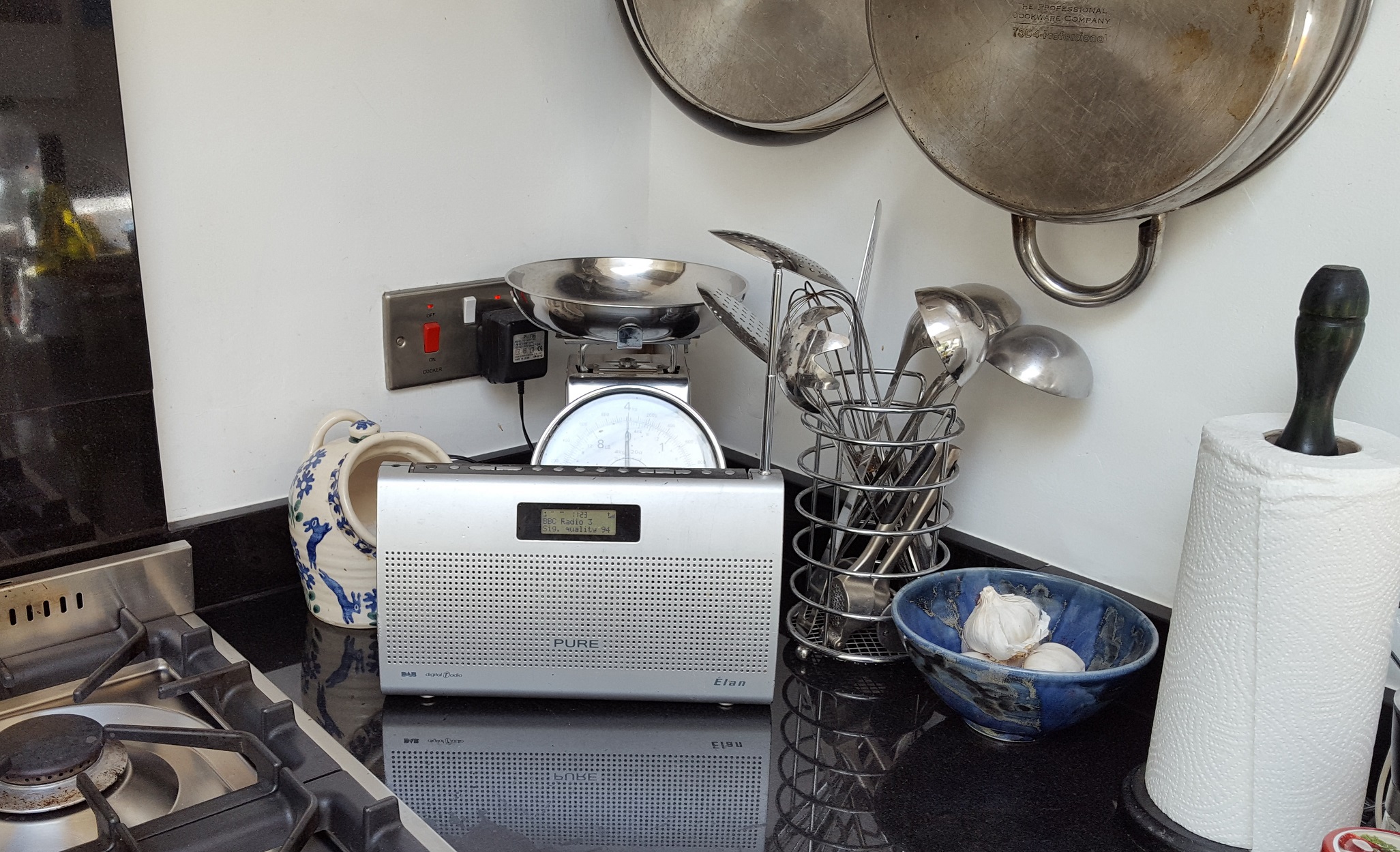
I love BBC Radio 3 for lots of reasons. It has more live music than any other station, they play a wide range of music that covers both classical and jazz with something new to attract your attention every day, they play a good deal of 20th Century music and more recently lots of works by female composers. I listen to Radio 3 morning, noon and night.
One of the really useful things that Radio 3 has been doing for a few years now is sending out tweets through its Music Bot (@bbcr3MusicBot) telling the World what it is playing as it is playing it. So if you are a fan of Johannes Brahms or Harrison Birtwistle you can see what is being played by searching for #JohannesBrahms or #HarrisonBirtwistle. Every composer that is played is labelled this way and so is #AaronCopland.
Of course I watch this feed quite avidly and for some time now I’ve noticed a trend in the pieces that were being played. Last week whilst waiting for a plane in Malaga Airport with nothing better to do I decided to go through the last 4 years of #AaronCopland tweets to see which pieces were the most popular. As you do!
So (drum roll please!) here’s the Copland radio countdown from 10 to 1 with the number of times that each piece has been played in brackets:
- 10. 12 (or 8) Poems of Emily Dickinson (15)
- 9. Danzon Cubano (17)
- 8. Quiet City (19)
- 7. Concerto for Clarinet, Harp and Strings (25)
- 6. Billy the Kid (28)
- 5. El Salon Mexico (29)
- 4. Old American Songs (32)
- 3. Fanfare for the Common Man (45)
- 2. Appalachian Spring (65)
- 1. Rodeo (74)
(Please note: some of these are an amalgamated total – so for instance the number of plays of for instance Rodeo and Old American Songs is made up of individual movements within these works and Fanfare for the Common Man includes plays of Symphony No 3).
Of course I could have easily predicted the answers before I even started – there’s popular Copland and relatively unknown Copland and of course the popular pieces are played much more frequently. The reason why Rodeo is number 1 is that this is a combination of all the plays of all Four Dance Episodes and individual ones. If I was just counting the number of times a full piece was played Appalachian Spring would have walked it.
What was interesting though was just how narrow the selections were. Here are the numbers well and truly crunched:
Since August 2015 according to the BBC Radio 3 Music Bot there have been:
- 446 times when a Copland piece has been played
- Around 45 individual compositions have been played at least once (around 50% of Copland’s output)
- 11 pieces corresponded to 78.3% of the music played
- 87.4% of plays were of pieces composed during Copland’s populist heyday from 1936-52.
- Only 27 plays were of Copland’s more serious abstract works.
- Only 12 plays were of Copland’s film music
- Only 7 plays were of Copland’s chamber works
So on the plus side Copland is being played – roughly about once every three days. However, I’m a bit disappointed that listeners might think that the only Copland pieces worth listening to are Hoe Down, Buckaroo Holiday Simple Gifts and Fanfare for the Common Man.
Unfortunately, my view is that the Beeb are missing a trick. One of the great British Conductors of our time John Wilson together with the BBC Philharmonic has recently completed a really successful four album cycle of Copland’s orchestral works (available on Chandos). These recordings include works such as Statements, Symphonic Ode, Short Symphony, Connotations and Orchestral Variations as well as the more popular pieces. Since their release there have been only six plays of John Wilson (Saturday Night Waltz from Rodeo (3 plays), Symphony No. 3 (2) and Billy the Kid (1). It seems odd that Radio 3 isn’t doing more to plug these new vibrant recordings by one of their own bands. Even more so since some of them are among the 20th Centuries great neglected works.
I understand that certain radio programmes need bite sized chunks. This is why Hoe Down and Buckaroo Holiday at around 4 minutes in length get so many plays. I also understand that quite a lot of the playlist comes down to what is actually being played in concert halls or being chosen by guests.
Nevertheless, here are some suggestions for Radio 3 which I would love to see taken on board – my appeal for some of Copland’s other works that deserve to be brought to wider recognition and my views where they might fit into the schedule:
Breakfast – The Promise of Living (from the opera The Tender Land)
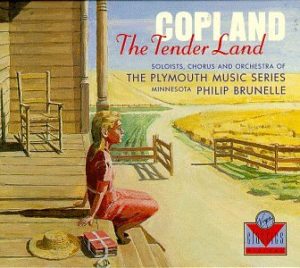 This is a wonderfully uplifting quintet at the end of the first half of Copland’s opera originally written for TV. It is full of hope and joy as the various characters each consider the benefits of loving thy neighbour and working together “to bring in the harvest, the blessings of harvest”. The opera version (Plymouth Music Series under Phillip Brunelle) is best although there is also a suite version. This piece was played just before my wife and I walked down the aisle at our wedding. The crescendo finale when all five characters sing in unison always brings a lump to the throat. I am amazed that this remarkable piece in Copland’s popular style is not more widely known. It’s a knock out and would be brilliant on the Breakfast Show. I am sure that people would hear it and go to work with a spring in their step and a smile on their face.
This is a wonderfully uplifting quintet at the end of the first half of Copland’s opera originally written for TV. It is full of hope and joy as the various characters each consider the benefits of loving thy neighbour and working together “to bring in the harvest, the blessings of harvest”. The opera version (Plymouth Music Series under Phillip Brunelle) is best although there is also a suite version. This piece was played just before my wife and I walked down the aisle at our wedding. The crescendo finale when all five characters sing in unison always brings a lump to the throat. I am amazed that this remarkable piece in Copland’s popular style is not more widely known. It’s a knock out and would be brilliant on the Breakfast Show. I am sure that people would hear it and go to work with a spring in their step and a smile on their face.
Essential Classics – Piano Variations / Midsummer Nocturne
The Piano Variations is Copland’s most influential piano piece and one of the few abstract works that is firmly in the repertory. Lean and angular and reminiscent of towering New York skyscrapers this really should be considered for the Companion Piece slot. It would be interesting to find out what listeners would pair this with. For me rather predictably I’d pair it with Copland’s Orchestral Variations which is his own transcription of the work. If you want to hear just how wonderful an orchestrator Copland was then you have to listen to these two pieces side by side. The colour created by Copland’s ingenious use of percussion and brass make it sound like a new stand alone piece. I would love to hear this live – I think it would be electric.
At the other end of the Copland piano spectrum is Midsummer Nocturne. This glorious miniature was written in the 1940’s but only discovered by Copland’s friend Philip Ramey when Copland was in his dotage. Wistful, slightly melancholic and full of charm it is not unlike the Girl with the Flaxen Hair by Debussy. As such it provides an interesting counterpoint to the Piano Variations and would be absolutely perfect for the Slow Moment slot. Also at only two minutes long it could easily fit those odd little spots at the end of a programme.
Composer of the Week / Sound of Cinema
Copland last featured on the COTW programme back in 1913 so he’s probably due another chance to take the spotlight. My choice would be a week of programmes dedicated to Copland’s works for Screen, Stage, Radio and TV. Copland’s influence on movie music is widely regarded and some brilliant recordings of his film and incidental music have been released over the last few years. There are great stories that go hand in hand –
- Copland’s view that his stage career was a flop (e.g. Quiet City) but the music was so good that it ended up as a concert suite with other bits incorporated in the film music for Our Town and Appalachian Spring
- How he won the Oscar for the film that was robbed of his overture (The Heiress)
- How he was writing his opera which involves false accusations and mistrust of strangers whilst himself being in front of the House of Un-American Activities (The Tender Land).
Seeing that so few of Copland’s film scores get an airing on the radio this would redress the balance perfectly.
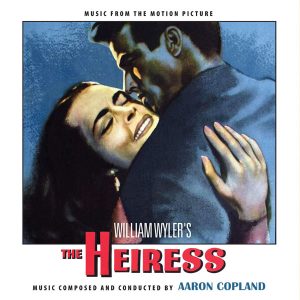 The Heiress saga, which led Copland to write a letter to the press distancing himself from the production led to few follow up offers from Hollywood. He would write one last film score for a low budget art film called Something Wild. For me this is one of the best soundtracks ever (available on Varèse Sarabande). Carrol Baker, who played the starring role of Carrie Ann told Copland “Your music makes me a wonderful actress”. If the first bar of New York Profile doesn’t make you sit up and take notice then nothing will. A double barrelled, full on battery of percussion and brass coupled with great views of New York in black and white set by the legendary Saul Bass. This soundtrack was finally only released a few years ago. The story of this music and how it finally came to light following years of detective work by film music aficionado Mark Leneker would make a great episode of The Sound of Cinema.
The Heiress saga, which led Copland to write a letter to the press distancing himself from the production led to few follow up offers from Hollywood. He would write one last film score for a low budget art film called Something Wild. For me this is one of the best soundtracks ever (available on Varèse Sarabande). Carrol Baker, who played the starring role of Carrie Ann told Copland “Your music makes me a wonderful actress”. If the first bar of New York Profile doesn’t make you sit up and take notice then nothing will. A double barrelled, full on battery of percussion and brass coupled with great views of New York in black and white set by the legendary Saul Bass. This soundtrack was finally only released a few years ago. The story of this music and how it finally came to light following years of detective work by film music aficionado Mark Leneker would make a great episode of The Sound of Cinema.
(For UK listeners with a TV license, you can listen to a Sound of Cinema episode about The Heiress here).
In Tune – Sextet for clarinet piano and string quartet / Movement for String Quartet
I would love to hear one of Copland’s athletic chamber pieces played on In Tune. Of course this relies on the guests involved and what they choose to play. The first or third movements from the Sextet (reworking of Symphony No 2) or Movement for String Quartet would fit this bill. This is really very exciting music with great rhythms and bounce. It would also be perfect also for the Mix Tape.
So there you have it – my thoughts on some of Copland’s unknown treasures and where they might fit in the BBC Radio 3 schedule. These pieces are in turn transcendent, brooding, wistful, declamatory, austere and muscular – and all are underlined with Copland’s natural gifts for rhythm and melody. I’ll be sending this in with requests to the various shows and will keep you posted on any successes via my Twitter feed. Will it make an impression on the Copland radio Top 10? Let’s hope so!

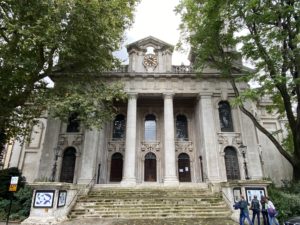
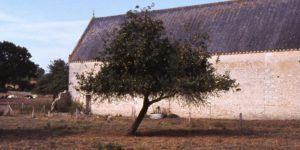

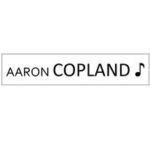




Leave a Comment